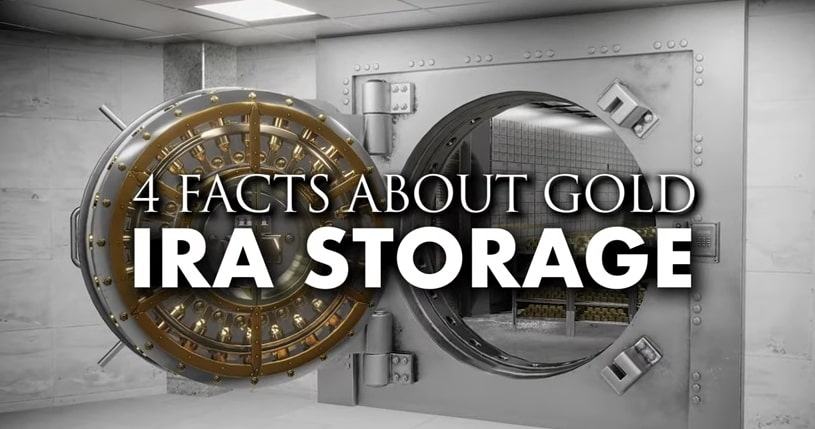Hold Physical Gold in Your IRA
Let me tell you something no one really talks about at dinner parties: retirement planning is low-key terrifying. Not “monster-under-the-bed” scary, but more like realizing your 401(k) is doing the electric slide off a financial cliff while you’re still out here trying to max your Roth like a responsible adult.
So, here’s how I ended up holding actual, real-deal physical gold in my IRA. No, not the fake “digital gold” that sounds fancy but vanishes faster than your ex’s promise to text back. I’m talking about the heavy, shiny, Fort-Knox-worthy stuff.
Yeah, that gold.
The Backstory: Wall Street Whiplash 😵💫
Alright, rewind the tape to mid-2022. I’m sitting at my desk—triple monitors, cold brew sweating next to my mechanical keyboard like it’s an Olympic event. The market’s doing its usual bipolar routine: tech stocks tanking, inflation being a diva, and everyone on CNBC sounding like they’ve had too much espresso and not enough answers.
One day, I looked at my portfolio and just muttered, “What the hell am I doing?”
I had all this paper wealth—index funds, REITs, crypto (which, let’s not even go there)—but nothing tangible. I’m not a prepper hiding in a bunker with cans of beans, but I do believe in hedging my bets. That’s when the idea of gold slipped into my brain like a mischievous raccoon. 🦝
The “Aha!” Moment: Why Gold, Though?
It wasn’t an overnight epiphany. I started reading the information on Gold is Money 2 and it was more like a slow, grudging realization, kind of like admitting pineapple on pizza might actually slap.
I kept thinking: If fiat currency goes full clown mode (which, let’s be real, it’s flirting with every time the Fed opens its mouth), what do I actually own? What can’t be digitally erased or hacked or inflated into monopoly money?
Enter: physical gold.
Gold doesn’t yield dividends, sure. But it doesn’t need to. It’s the financial equivalent of that one quiet kid in class who turns out to be a genius once the chaos settles down.
So, I started Googling like a man possessed:
“Can you hold gold in an IRA?”
“Gold IRA vs traditional IRA”
“Is Peter Schiff crazy or secretly right?” (Answer: maybe both)
Yes, You Can Hold Physical Gold in an IRA… But It Ain’t That Simple
Here’s the thing nobody tells you: you can’t just stroll into your local gold shop, slap a few Krugerrands on the counter, and tell your IRA custodian, “Put this in my retirement account, stat.”
Nah. There are rules. Lots of them. IRS-level red tape wrapped in legal jargon and tied with a bow made of “thou shalt not screw this up.”
What you can do is set up something called a Self-Directed IRA (SDIRA). It’s like the wild west of retirement accounts. You call the shots—within reason.
But here’s the kicker:
The gold has to be IRS-approved, which means no novelty coins or some pirate doubloon you found on eBay. We’re talking legit bullion:
-
American Gold Eagles
-
Canadian Maple Leafs
-
Bars that meet a purity of at least 99.5%
Also, you can’t store it at home. The IRS is weirdly obsessed with this. You gotta work with an approved depository. No, your sock drawer doesn’t count. Neither does your gun safe or that weird hiding spot behind your bookshelf.
Picking a Custodian: Where the Real Fun Begins
Not gonna lie—this part made me want to smash my phone. Everyone and their mother has a “gold IRA” service. They all promise the moon:
“No fees!”
“Safe and secure!”
“Backed by celebrity endorsements!” (Thanks, Ron Paul…)
But I did my homework like a nerd on Adderall. I called around. I asked dumb questions. I read the fine print, which—pro tip—you absolutely should, because fees can creep up on you like a bad Tinder date.
I ended up choosing a custodian that was boring in all the right ways: transparent fees, responsive customer service, and a clear process for buying and storing physical gold in a tax-advantaged account.
The First Time I Bought Gold for My IRA
Let me tell you, there’s something weirdly satisfying about buying gold. Not gold stocks. Not gold ETFs. But actual, honest-to-God metal.
It feels like you’re shaking hands with history.
Once the purchase went through, the custodian arranged for the delivery to the depository, which kind of feels like hiring a bodyguard for your gold. You never actually see it (unless you want to fly out and schedule a viewing—which some people do). But you know it’s there. You know it’s real.
And weirdly enough, that gave me a sense of peace I didn’t know I needed.
Is It for Everyone? Nah. But Here’s Who It Is For
Let’s keep it real: physical gold in an IRA isn’t for everyone.
If you’re 22 and living paycheck to paycheck while surviving on cold ramen and dreams, maybe chill on the gold bars for now.
But if:
-
You’re over 40 and side-eyeing the economy like it just rear-ended your car
-
You already have stocks and bonds but want a tangible hedge
-
You don’t trust the Fed, Wall Street, or your cousin who keeps pushing Dogecoin
…then yeah, this might be for you.
Things I Wish I Knew (Before Going Full Smaug on My IRA) 🐉
-
Fees add up. There’s the setup fee, the annual maintenance fee, and storage fees. It’s like Spotify Premium for your gold.
-
Liquidity isn’t instant. Want to sell? It’s not like clicking a button on Robinhood. It takes a few days. So plan ahead.
-
You need a trusted custodian. One bad actor and your retirement dreams turn into an episode of American Greed.
-
Diversification still matters. Don’t put everything in gold. That’s not smart—it’s paranoid.
Would I Do It Again?
Absolutely. No regrets.
Having physical gold in my IRA feels like I built a bunker—not for the apocalypse, but for my financial future. It’s not flashy. It doesn’t go viral on Reddit. But it’s there. Solid. Real.
And in a world of digital this and algorithm that, sometimes it’s nice to own something that doesn’t care about Wi-Fi.
So yeah—call me old school. Call me paranoid. Call me that one uncle who always talks about inflation at family BBQs.
Just don’t call me unprepared.
Key Takeaways
-
You can hold physical gold in an IRA—but only through a Self-Directed IRA with a qualified custodian and IRS-approved depository.
-
The gold must meet strict purity standards, and collectibles or home storage don’t qualify.
-
It’s not as liquid as stocks or ETFs, but it offers a tangible hedge against inflation and market volatility.
-
Fees, custodians, and the storage facility all matter—do your homework.
-
Holding physical gold in your IRA can provide peace of mind and diversification, especially if you’re uneasy about traditional financial markets.
Alright, I’m off to check the spot price of gold and sip overpriced espresso like a true financial hipster.
If you’re considering this move—take your time, do your homework, and don’t let the market FOMO bully you.
Solid choices > shiny trends.
👊 Stay golden.…
Hold Physical Gold in Your IRA Read More »


